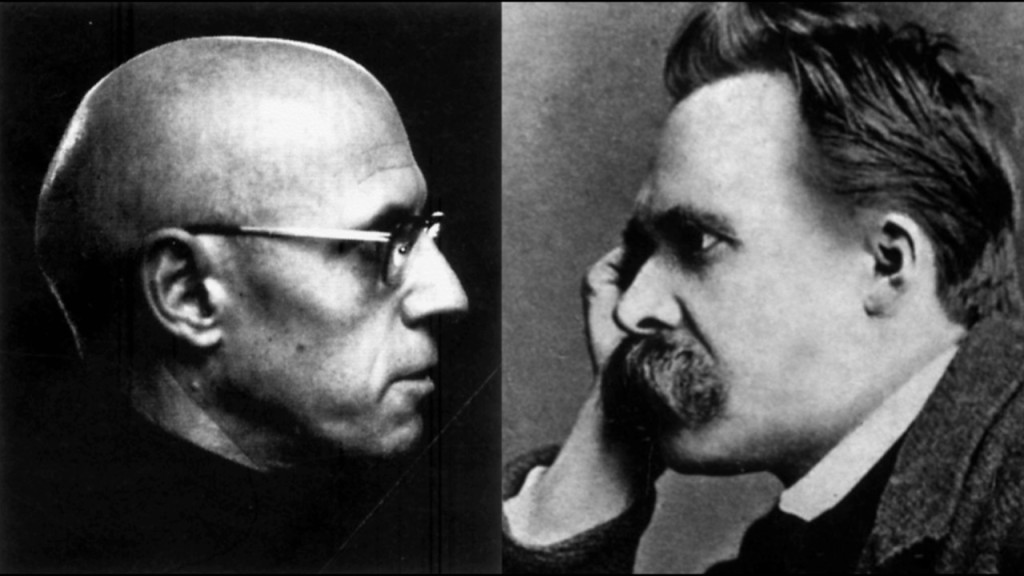Foucault’s response to an interview question:

“Heidegger has always been for me the essential philosopher. I started by reading Hegel, then Marx, and I began to read Heidegger in 1951 or 1952; then in 1952 or 1953, I no longer remember, I read Nietzsche. I still have the notes I took while reading Heidegger – I have tons of them! – and they are far more important than the ones I took on Hegel or Marx. My whole philosophical development was determined by my reading of Heidegger. But I recognize that Nietzsche prevailed over him.”
So: Nietzsche prevails over Heidegger, and Heidegger is more important than Marx. (Source: Foucault Live (Interviews, 1961-1984). Edited by Sylvère Lotringer. New York: Semiotext(e), 1989, p. 470.)
Related: In the Philosophers, Explained series. Heidegger’s key essay on the fundamentals of his philosophy:
Also related: Explaining Postmodernism: Skepticism and Socialism from Rousseau to Foucault.
Explaining Postmodernism: Skepticism and Socialism from Rousseau to Foucault. Description: “philosopher Stephen Hicks provides a provocative account of why postmodernism has been the most vigorous intellectual movement of the late 20th century. Why do skeptical and relativistic arguments have such power in the contemporary intellectual world? Why do they have that power in the humanities but not in the sciences? Why has a significant portion of the political Left – the same Left that traditionally promoted reason, science, equality for all, and optimism – now switched to themes of anti-reason, anti-science, double standards, and cynicism?”
Why?
Why do they have the power?
Because women have moved into them.
Please contact me via my email. I would like to talk.